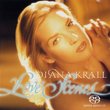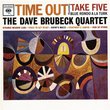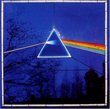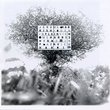| All Artists: Jerome Harris Title: Rendezvous Members Wishing: 0 Total Copies: 0 Label: Stereophile Original Release Date: 6/1/1999 Release Date: 6/1/1999 Genres: Jazz, Pop Style: Avant Garde & Free Jazz Number of Discs: 1 SwapaCD Credits: 1 UPC: 645371001326 |
Search - Jerome Harris :: Rendezvous
 | Jerome Harris Rendezvous Genres: Jazz, Pop
|
CD DetailsSimilar CDs
|
CD ReviewsSounds beautiful and very easy on the ear Ian Muldoon | Coffs Harbour, NSW Australia | 06/21/2000 (4 out of 5 stars) "Sounds sweet, and beautifully balanced with a variety of colours and rhythmic interest not least from the acoustic bass guitar, with an excellent stereo sound image, make this a music-lover's treat. For example, at the opening of HAND BY HAND one is SURPRISED to hear the gentle splash of cymbals so real and immediate are their presence to the right of the sound stage, and the bass guitar contrary to my expectations is full and round in tone. This is the first jazz record of the "classical" label STEREOPHILE and they have chosen Mr Jerome Harris for that honour along with some of America's real classical music (jazz) musicians for that honour. The lineup of instrumentation is trombone, vibes, alto, bass and drums and is an interesting one. Take Mr Edward Kennedy Ellington's THE MOOCHE, the only non-Jerome Harris tune on the set. Duke's formidable originality of SOUND and his prediliction of writing pieces not just for certain instruments but for certain individual players provides a challenge for anyone tempted to play his music. For the original THE MOOCHE c1928 it was mainly a series of duets but became renowned as featuring a stunning solo by JOHNNY HODGES and a beguiling contribution by that plunger muted master BUBBER MILEY. On the RENDEZVOUS CD, Bubber's role is taken by Mr Arthur Baron, a Mr Ellington alumni, on trombone, and he does credit to the original with a great solo. The alto solo is taken by Mr Marty Ehrlich who, with a nod to Mr Hodges' long expressive lines, is soon off on his own distinctive and inventive improvisation. It is a treat to hear this reworking of THE MOOCHE. But I find the originals, all by the nominal leader Mr Harris,more to my liking and quite outstanding. To my ear, the overriding quality of this music is that is very easy to listen to - there is no strain in its execution, no reaching for effects, but it seems a natural and comfortable emanation of the musicians themselves who clearly seems to love the music. The sweetness of the recording, made in a former church building, by executive producer, and engineer John Atkinson, truly does justice to the music. I love this music." Not Gutsy Enough Karl W. Nehring | Ostrander, OH USA | 07/17/2009 (3 out of 5 stars) "To my way of thinking, the most interesting thing about this recording is that a listener can pick up the March 1999 issue of Stereophile magazine and read all about it--both music and sound. One thing you will find out by reading the article is that this is hardly the "set up a pair of good mikes by ear and let it rip" kind of recording that may only exist in audiophile myth. Engineer John Atkinson had to work hard to get this thing down, and I commend the Stereophile article to those with more than a passing interest in recording techniques.
At any rate, the end product sounds pretty darn good; indeed, my reservations about this CD are musical, not sonic. For all the good sound, I just never felt very moved by the music, and after a few plays, had no real desire to play this CD again. (Sorry, JA--I appreciate the work you put into this, but I have to be honest). Perhaps others will get more than I did out of the music, which features Jerome Harris on acoustic bass guitar, Marty Ehrlich on alto sax, Arthur Baron on trombone, Steve Nelson on vibes, and Billy Drummond on drums. My second quibble concerns the sound of leader Harris's acoustic bass guitar. To these ears at least, this instrument does not sound "gutsy" enough in this setting, and I found myself wishing that Harris had employed either a standup bass or a solid-body electric bass. Note that my quibble here is not with Atkinson's job of recording the sound of this instrument, it is with the sound of instrument itself. The reason I am including such a lukewarm review is that although I am not all that impressed by the music on this particular recording, I find it exciting that an outfit such as Stereophile is recording jazz, and I encourage them to continue to do so. They've done a nice job with this recording, and being able to read about the process in the magazine is a splendid bonus for audiophiles. Jolly good show, JA!" |

 Track Listings (7) - Disc #1
Track Listings (7) - Disc #1


